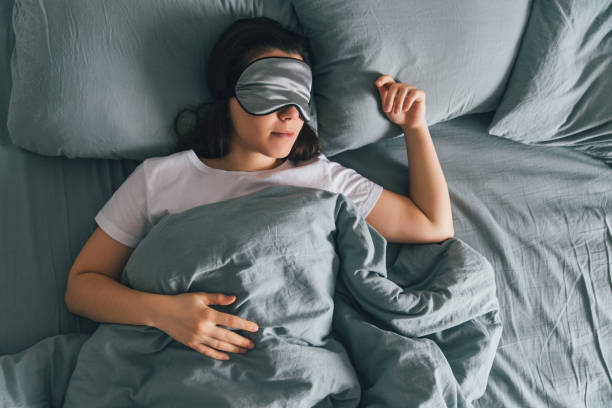Library
Subscribe
Sleep is one of the three pillars of health along with diet and exercise
Published on Fri Mar 23, 2018 - 3 min read

In A Nutshell
Healthy adults should get between 7 to 9 hours of sleep a night yet over 80 percent of the population has impaired sleep 2 or more nights a week with 30 percent having chronic insomnia. from Sleep is one of the three pillars of health along with diet and exerciseSleep
Put insomnia to rest and finally get a good night’s sleep with our top healthy sleeping tips.
Sleep is one of the three pillars of health along with diet and exercise. Healthy adults should get between 7 to 9 hours of sleep a night yet over 80 percent of the population has impaired sleep 2 or more nights a week1 with 30 percent having chronic insomnia2. The consequence of poor sleep can be dire, for instance, in one study proper melatonin production (good sleep) slowed breast cancer growth by 70%3 while inhibiting melatonin (poor sleep) significantly sped up cancer growth4. If you are one of the millions who suffer from poor sleep, this blog is for you.
Sleeping well is all about being in tune with your body’s natural rhythms. Known as the Circadian Rhythm, each cell in our body has an internal clock that is responsible for the timing of almost all biologic functions such as hormone production, metabolism, repair, and yes sleep5.
Some helpful supplements may include:
- Melatonin decreases the time it takes to fall asleep, increases total sleep time and improves overall sleep quality12. Because of melatonin’s short half-life, it is essential to use a timed-release supplement if it takes more than 1 hour to fall asleep. If less than an hour sublingual, liquid, or regular pills are okay13.
- Magnesium helps us fall asleep faster and increases sleep duration and quality. It does so via a variety of mechanisms including increasing melatonin and GABA, a mentally calming neurotransmitter14. Magnesium also significantly increases slow-wave sleep, our deepest most restorative sleep cycle15.
- Magnolia bark is one of the most potent herbs for sleep. It works as an anxiolytic, helping to lower anxiety, depression, and stress16. One study found it just as effective as diazepam a prescription anti-anxiety medication17. Research shows that magnolia accomplishes this by reducing adrenaline18, increasing serotonin, dopamine19, GABA20, and acting as a potent anti-inflammatory for the brain21.
- Essential oils are a powerful tool in our quest for good sleep. Lavender is the most well studied and works to calm the nervous system, slow heart rate, decrease skin temperature and reduce anxiety22. Bergamot oil relieves tension, anxiety, stress23, actively reduces chronic pain24, and even changes brain wave patterns to a more relaxed meditative state. Other helpful oils include clary sage26 and ylang ylang27.
Healthy Sleep Tips
The most effective treatment for insomnia is proper sleep hygiene defined as behavioral interventions that one can do to help promote good sleep6. Some healthy habits to include:
- Getting adequate early morning sunlight stimulates the production of serotonin which the body will later to convert to melatonin in the presence of darkness7. Good sleep starts with a good morning!
- Ban the blue! Electronic devices emit blue light which shuts down the production of melatonin as they trick the brain into thinking it is daytime. Blue light at night is a modern epidemic and may be the single most significant factor impairing sleep today8. Stop using digital devices within 1 hour of bedtime.
- Sleep on your side. Research suggests that the brain drains more toxins when sleeping on your side including amyloid beta which forms the plaques in Alzheimer’s disease9.
- Only lay down when you are ready for sleep. Doing anything other than sleeping in bed such as reading, scrolling through Facebook, or even laying in bed staring at the ceiling trains your brain that the bed is not for sleeping10.
- Keep your cool. Our brain drops body temperatures at night to signal sleep. Keep your bedroom at 68 to promote this process. Exposing the feet, hands, and the head is often enough11.
For more tips, tricks, and personalized supplement recommendations for a good night’s sleep come see one of our trained nutrition specialist here at the Sunflower Shoppe.
[References]
- https://www.ncbi.nlm.nih.gov/pmc/articles/PMC181172/
- http://www.sleepeducation.org/news/2014/03/10/insomnia-awareness-day-facts-and-stats
- http://www.ingentaconnect.com/content/ben/ctmc/2002/00000002/00000002/art00002
- http://cancerres.aacrjournals.org/content/65/23/11174.short
- https://www.ncbi.nlm.nih.gov/pubmed/18797559
- https://link.springer.com/chapter/10.1007/978-1-60327-042-7_22
- https://www.ncbi.nlm.nih.gov/pubmed/17364578
- https://www.health.harvard.edu/staying-healthy/blue-light-has-a-dark-side
- http://www.jneurosci.org/content/35/31/11034.long
- http://healthland.time.com/2011/01/27/cant-sleep-it-may-help-to-get-out-of-bed/
- https://www.ncbi.nlm.nih.gov/pmc/articles/PMC3427038/
- https://www.ncbi.nlm.nih.gov/pubmed/23691095
- https://www.talkaboutsleep.com/how-to-use-melatonin-correctly/
- https://www.ncbi.nlm.nih.gov/pmc/articles/PMC3703169/
- https://www.ncbi.nlm.nih.gov/pubmed/12163983
- https://www.ncbi.nlm.nih.gov/pubmed/11186252
- https://www.ncbi.nlm.nih.gov/pubmed/10197425
- https://www.ncbi.nlm.nih.gov/pubmed/10856439
- https://www.ncbi.nlm.nih.gov/pubmed/19505549
- https://www.ncbi.nlm.nih.gov/pubmed/21501091
- https://www.ncbi.nlm.nih.gov/pmc/articles/PMC2765942/
- https://www.ncbi.nlm.nih.gov/pmc/articles/PMC3612440/
- https://www.ncbi.nlm.nih.gov/pmc/articles/PMC4345801/
- https://www.ncbi.nlm.nih.gov/pubmed/26996621
- https://www.ncbi.nlm.nih.gov/pubmed/20093169/
- https://www.ncbi.nlm.nih.gov/pubmed/24802524
- https://www.ncbi.nlm.nih.gov/pubmed/17211115
Published By:
 Bryan Bradford
Bryan Bradford